[ESP/ENG] Valoración sobre la actuación de Cuba en París 2024. Opinión
Una introducción necesaria
No es un análisis que coincidirá con el criterio de muchos, pero, es mi opinión personal basada en experiencias, objetividad y valoración personal.
¿Fue buena, regular o mala la actuación de nuestra delegación?
¿Cuáles fueron los deportes que quedaron a deber y cuáles no?
¿Qué debemos hacer de cara a Los Ángeles 2028?
De estos y otros aspectos tratará esta publicación, en la que, desde el más absoluto respeto intentaremos exponer nuestras consideraciones, en torno a la actuación de Cuba, en París 2024.
La delegación a París 2024
Fue una delegación que estuvo muy por debajo de la media histórica, pero, ajustada a la realidad de nuestro deporte que, como todas las esferas de la sociedad atraviesa por una intensa crisis económica.
A pesar de ello, llevamos representantes en atletismo, boxeo, ciclismo, clavados, lucha, natación, pentatlón moderno, taekwondo, tiro con arco, tiro deportivo, tenis de mesa y voleibol de playa.
Como puede apreciarse, nuevamente quedamos sin representación en deportes colectivos y en otros como el boxeo y la lucha el número de participantes estuvo por debajo de la potencialidad real.
Deportes destacados
El boxeo y la lucha volvieron a ser los deportes más destacados, aun cuando en ninguno de los dos casos se cumplieron los pronósticos realizados. Sin embargo, en ambos casos estuvieron los títulos alcanzados y aportaron 7 de las nueve medallas de la delegación, lo que representa el 77.7% del total de preseas.
Otro elemento que debemos significar es que, en el caso de la lucha grecorromana tanto Orta como Rosillo perdieron con los favoritos al oro, pronóstico que ambos también llevaban.
Por último, estos dos deportes continuaron la cosecha dorada de medallas que los han llevado a ser el deporte con más título de nuestro país (boxeo) y, en el caso de la lucha, el único deporte que desde Barcelona 1992 alcanza, al menos, un título dorado.
Deportes por debajo
Haciendo una valoración objetiva, crítica y apegada a los pronósticos debo decir que el atletismo fue el deporte que peores resultados tuvo, sobre la base de las posibilidades reales. Al igual que este deporte, debemos mencionar al tiro deportivo que, más allá de Leuris Pupo podían tener mejores ubicaciones. Y ojo, no hablo solo de medallas.
Por ejemplo, en el atletismo, para quien escribe, las mejores actuaciones fueron para Liadagmis Povea del triple salto (4to lugar) y Daily Cooper (noveno). En el caso de Povea alcanzó un diploma olímpico que, para ella es muy meritorio porque estuvo lesionada durante parte de la temporada y Cooper estableció sus mejores tiempos de por vida.
Otros ejemplos positivos fueron del voleibol de playa que les ganaron a dos parejas que estaban por encima y perdieron un partido, con la pareja que a la postre fue la campeona olímpica que, además, era la pareja número 1 del ranking. En el mismo sitio positivo está Anisley García que, llegó a semifinales en la plataforma, algo inédito para el clavado femenino cubano.
Un elemento que se debe analizar a fondo es por qué nuestros atletas no hacen sus mejores marcas en la competencia fundamental del año, hay que ver cómo se preparan los microciclos y macrciclos, cómo se dosifican las cargas, cómo se organizan las competencias o ver si el problema es sicológico, para que este personal pueda hacer su trabajo con el atleta.
¿Era posible estar entre los 20 primeros?
Considero que sí, incluso, con dos medallas doradas más podíamos estar por debajo del lugar 20. Deportes como el propio boxeo, la lucha o el atletismo quedaron a deber.
¿Por qué no estuvimos en el lugar pronosticado?
Muchos han planteado que la delegación era muy reducida y es cierto, pero, cantidad no significa calidad ni garantía de medallas. Con lo que se participó se podía haber alcanzado la meta propuesta. Pero, a juicio del autor se falló en:
• Falló el pronóstico de título dorado en tres deportes (boxeo, lucha y atletismo)
• Tres de los que llevaban pronóstico de medallas no la alcanzaron
• En algunos casos faltó el nivel de concentración adecuado, el aplomo necesario o no se tuvo el nivel sicológico adecuado para afrontar la competencia.
• En menor medida, no todos los clasificados tuvieron la preparación adecuada ni se codearon con los mejores de sus especialidades.
¿Fue buena, regular o mala la actuación de nuestra delegación?
En mi criterio personal diría que la actuación fue aceptable. Pudo ser mejor, pero, no puedo estar de acuerdo con los que hablan de un desastre. Es cierto que, alcanzamos 9 medallas, pero, 1 de cada 7 atletas alcanzó medallas.
Es cierto que hemos retrocedido y eso se ha visto en los Juegos Centroamericanos y Panamericanos, el no clasificar en deportes colectivos o ceder puestos de vanguardia en deportes que antaño dominábamos.
¿Qué debemos hacer de cara a Los Ángeles 2028?
Varios son los elementos que debemos hacer si queremos retornar a estar entre los 20 primeros y esto es lo que quien escribe piensa:
• Se deben garantizar los recursos necesarios para los atletas de alto rendimiento, sin olvidar a los que vienen detrás.
• La estrategia olímpica debe garantizar que en el cronograma competitivo nuestros atletas compitan con los mejores del mundo. Un ejemplo de la importancia de lo anterior lo brindó el voleibol de playa que tuvo que buscar su clasificación en el circuito mundial y esto le permitió conocer a los mejores del mundo, jugar contra ellos y adaptarse a su manera de jugar.
• Elevar los conocimientos técnicos, científicos y metodológicos de nuestros entrenadores y que estén a tono con lo que ocurre en el mundo.
• Aplicación de los adelantos de la ciencia a los entrenamientos deportivos.
• A mediano plazo se debe garantizar la recuperación de las instalaciones deportivas y mejorar la calidad de nuestros campeonatos nacionales.
• Garantizar la inserción de nuestros deportistas en los clubes profesionales, para mejorar sus condiciones de vida y su calidad deportiva.
Un comentario final
El mundo cambió y, las condiciones que teníamos también lo hicieron. Ya no tenemos las bases de entrenamientos, competiciones y otras prioridades que garantizaban una preparación excelente, de cara a cualquier competición. Pero, no podemos ni lamentarnos ni quedarnos en este recuerdo porque, entonces, en 2028, seguiremos cuesta abajo.
Nota: El traductor utilizado fue el DeepL Translate.
ENGLISH
A necessary introduction
This is a necessary publication, a meeting between the fan and the sports analyst that I try to be, and I do it with the utmost respect and objectivity that the moment deserves.
It is not an analysis that will coincide with the criteria of many, but it is my personal opinion based on experiences, objectivity and personal assessment.
Was the performance of our delegation good, regular or bad?
Which were the sports that failed and which did not?
What should we do for Los Angeles 2028?
These and other aspects will be the subject of this publication, in which, from the most absolute respect, we will try to expose our considerations about Cuba's performance in Paris 2024.
The delegation to Paris 2024
It was a delegation that was well below the historical average, but adjusted to the reality of our sport, which, like all spheres of society, is going through an intense economic crisis.
In spite of this, we had representatives in athletics, boxing, cycling, diving, wrestling, swimming, modern pentathlon, taekwondo, archery, shooting, table tennis and beach volleyball.
As can be seen, we were once again underrepresented in team sports and in others, such as boxing and wrestling, the number of participants was below our real potential.
Outstanding sports
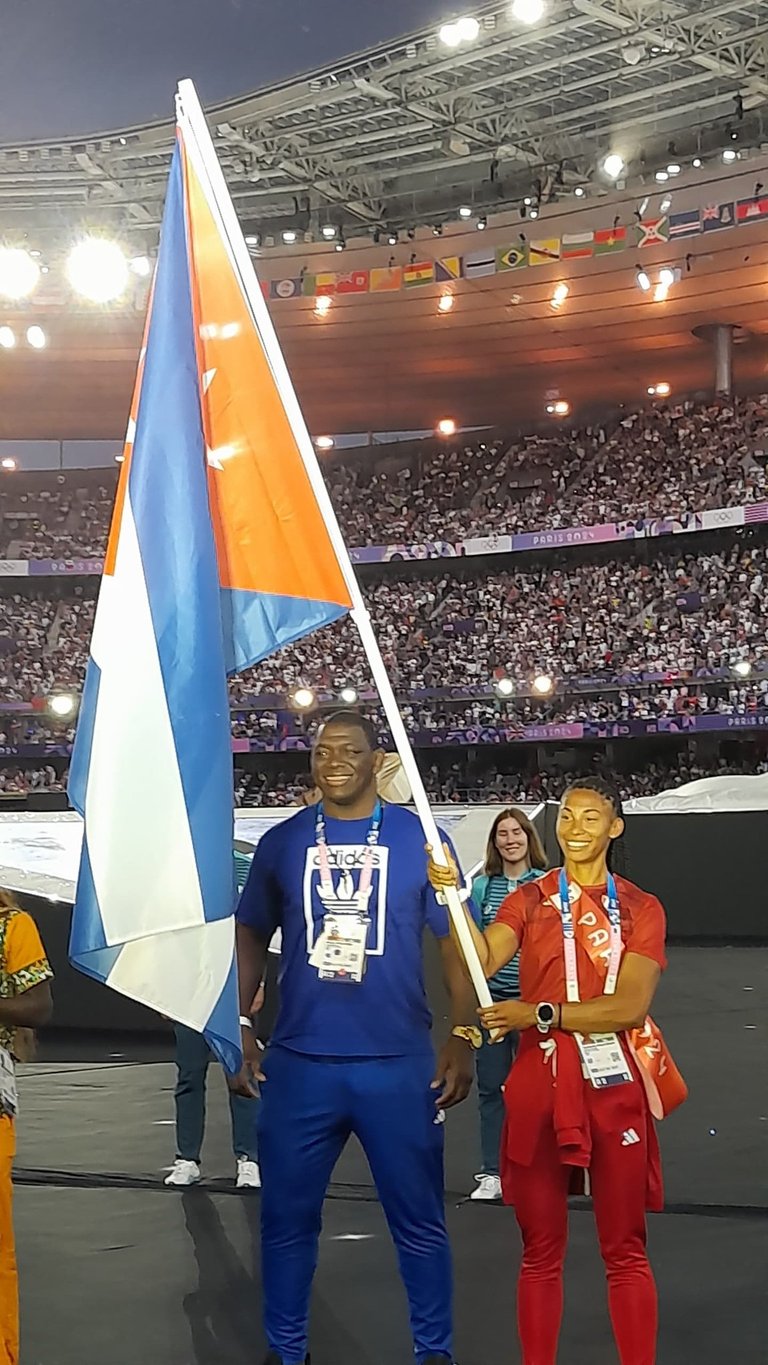 fuente/source
fuente/source
Boxing and wrestling were once again the most outstanding sports, even though in neither case did the predictions come true. However, in both cases the titles were won and contributed 7 of the delegation's nine medals, which represents 77.7% of the total number of medals.
Another element that should be noted is that, in the case of Greco-Roman wrestling, both Orta and Rosillo lost to the favorites for the gold medal, a prediction that both of them also carried.
Finally, these two sports continued the golden harvest of medals that have made them the sport with the most titles in our country (boxing) and, in the case of wrestling, the only sport that since Barcelona 1992 has won at least one golden title.
Sports below
Making an objective, critical and accurate assessment, I must say that athletics was the sport that had the worst results, based on the real possibilities. As well as this sport, we must mention shooting, which, beyond Leuris Pupo, could have had better results. And mind you, I am not only talking about medals.
For example, in athletics, for this writer, the best performances were for Liadagmis Povea in the triple jump (4th place) and Daily Cooper (9th). In Povea's case she achieved an Olympic diploma which, for her, is very meritorious because she was injured for part of the season and Cooper set lifetime best times.
Other positive examples were in beach volleyball, where they beat two pairs that were above them and lost one match to the pair that eventually became the Olympic champions, who were also the number 1 ranked pair. In the same positive place is Anisley Garcia, who reached the semifinals on the platform, something unprecedented for Cuban women's diving.
An element that should be analyzed in depth is why our athletes do not make their best marks in the fundamental competition of the year, we have to see how the microcycles and macrocycles are prepared, how the loads are dosed, how the competitions are organized or see if the problem is psychological, so that this staff can do their job with the athlete.
Was it possible to be in the top 20?
I think so, even with two more gold medals we could have been below the 20th place. Sports such as boxing, wrestling or athletics were left to do the same.
Why were we not in the predicted place?
Many have said that the delegation was too small and that is true, but quantity does not mean quality or a guarantee of medals. With what we participated, we could have reached the proposed goal. But, in the author's opinion, we failed:
- The golden title forecast failed in three sports (boxing, wrestling and athletics).
- Three of those with medal prognoses did not reach the medal forecast.
- In some cases, there was a lack of the adequate level of concentration, the necessary poise or the right psychological level to face the competition.
- To a lesser extent, not all of those who qualified had adequate preparation and did not rub shoulders with the best in their specialties.
Was the performance of our delegation good, average or bad?
In my personal criteria I would say that the performance was acceptable. It could have been better, but I cannot agree with those who speak of a disaster. It is true that we won 9 medals, but 1 out of 7 athletes won medals.
It is true that we have gone backwards and this has been seen in the Central American and Pan American Games, not qualifying in team sports or losing leading positions in sports that we once dominated.
What should we do in preparation for Los Angeles 2028?
There are several things we must do if we want to return to the top 20, and this is what this writer thinks:
- The necessary resources must be guaranteed for high-performance athletes, without forgetting those who come after them.
- The Olympic strategy must guarantee that in the competitive schedule our athletes compete with the best in the world. An example of the importance of the above was provided by beach volleyball, which had to seek its qualification in the world circuit and this allowed it to meet the best in the world, play against them and adapt to their way of playing.
- To raise the technical, scientific and methodological knowledge of our coaches so that they are in tune with what is happening in the world.
- Application of the advances of science to sports training.
- In the medium term, we must guarantee the recovery of sports facilities and improve the quality of our national championships.
- Guarantee the insertion of our athletes in professional clubs, to improve their living conditions and their sporting quality.
A final comment
The world has changed and so have the conditions we had. We no longer have the training bases, competitions and other priorities that guaranteed an excellent preparation for any competition. But, we can neither lament nor remain in this memory because, then, in 2028, we will still be going downhill.
Note: The translator used was DeepL Translate.
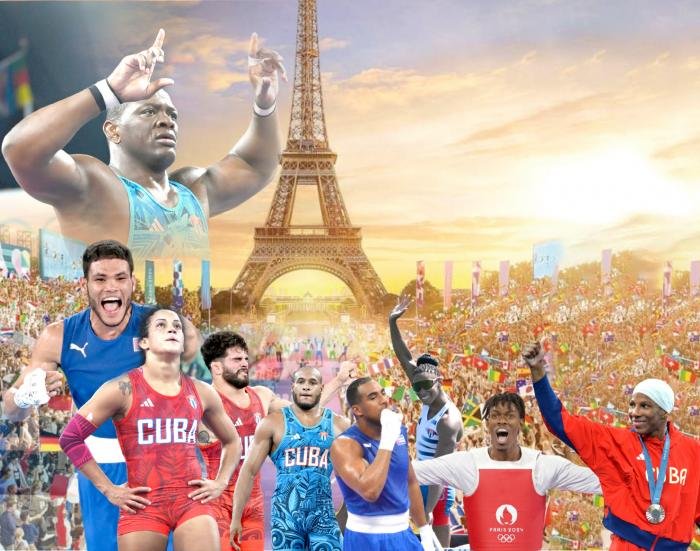
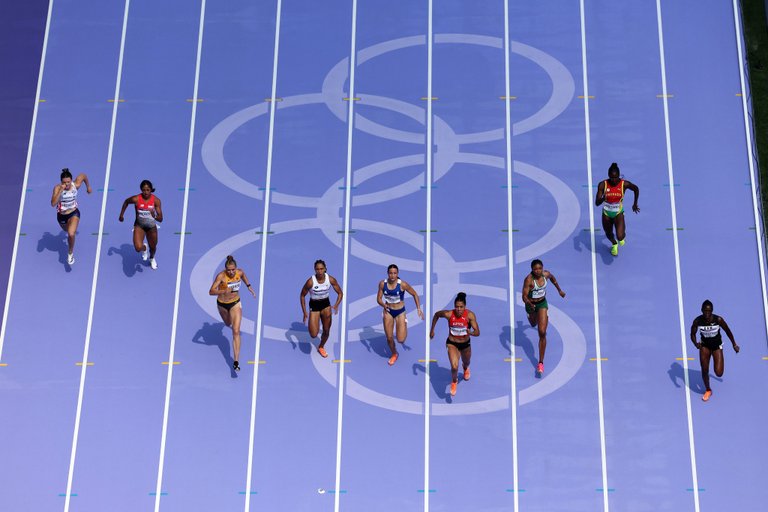
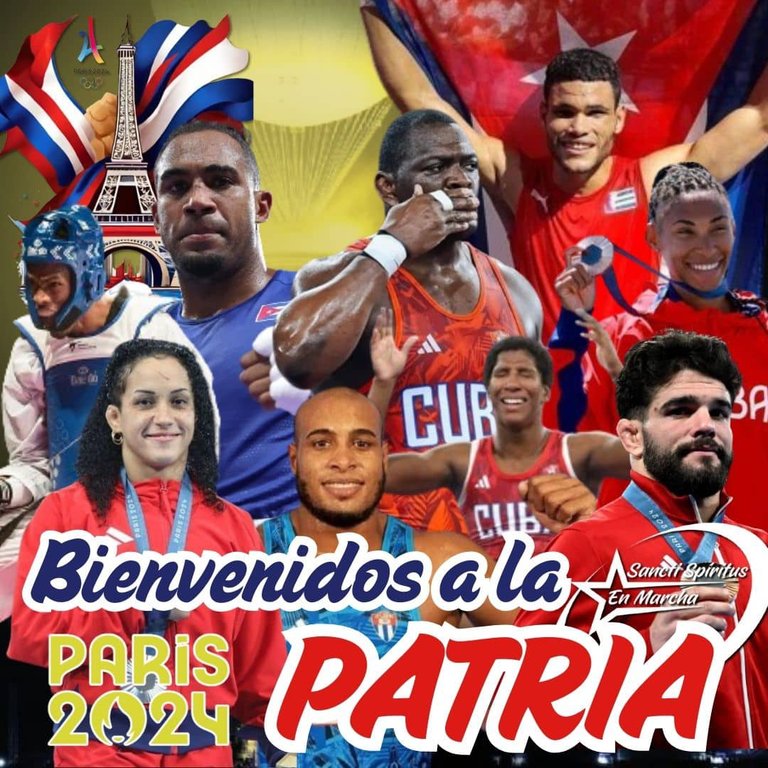
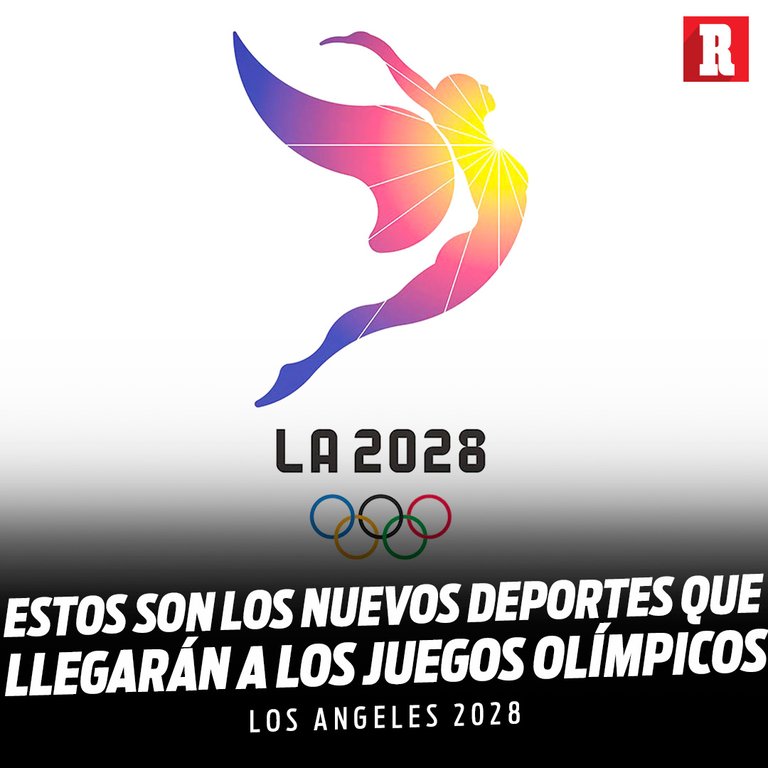
No solo la presencia del estado, apoyando a los atletas, es importante, sino también, todo el panorama socioeconómico influye, en llevar delegaciones realmente competitivas. Muchos atletas, en su día a día, la pelean para sobrevivir y obviamente, tendrán resultados diferentes a países, que tienen realidades totalmente diferentes.
A seguir trabajando, valorando a los representantes que fueron y soñando que todo mejores.
Como siempre, excelente su análisis, estimado amigo.
Saludos.
Así mismo es.
Cada vez se necesitan más recursos para atender a un atleta de alto rendimiento para que pueda alcanzar un resultado positivo en la competición al más alto nivel. Gracias por pasar y comentar.
Feliz jornada.
Salud y saludos.